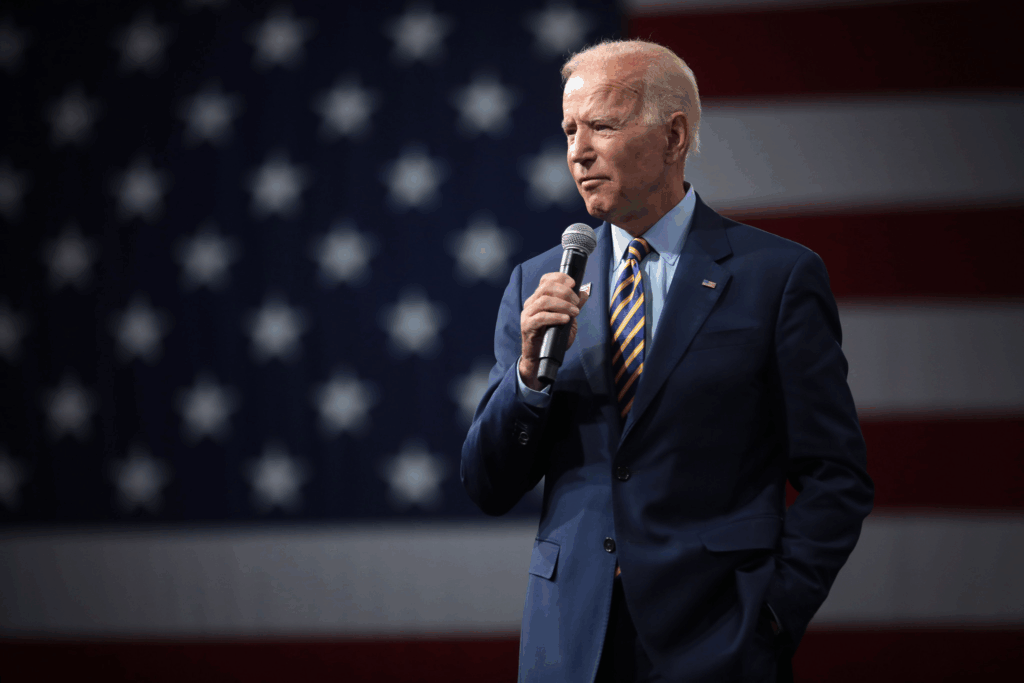Leaked Biden Interview Audio Reveals Struggles Omitted from Transcripts
Recently released audio from former President Joe Biden’s 2023 interview with Special Counsel Robert Hur is reigniting concerns about his mental sharpness during his final year in office. Unlike the previously published transcripts, the leaked tapes offer a far more intimate and troubling portrait of the aging leader.
In the recordings, Biden struggles to recall key historical and personal events—including the year Donald Trump was elected, the date he left the vice presidency, and even when his son Beau died. His voice is quiet, at times faltering. His responses are marked by long pauses, slurred speech, and apparent confusion, as his legal team frequently steps in to jog his memory.
The interviews, conducted over two separate three-hour sessions in the White House’s Map Room, were originally meant to investigate his handling of classified documents. But the atmosphere captured in the audio—punctuated by the ticking of a grandfather clock—conveys a deeper sense of decline. It’s a haunting stillness that no written transcript could convey.
The release of the recordings, obtained by Axios, has sparked widespread reaction, with many listeners echoing a single, uneasy sentiment: This doesn’t sound like the man who once held the highest office in the land.
The release of audio recordings from President Joe Biden’s 2023 interview with Special Counsel Robert Hur has sent shockwaves across the political spectrum, sparking an emotional firestorm online and renewed scrutiny over the president’s mental fitness.
While the written transcripts of the interview offered a sanitized view, the audio tells a different story—one of hesitation, slurred speech, and prolonged silences that painted a deeply human but concerning portrait of the 81-year-old commander-in-chief.
An Outpouring of Concern
Reactions online were swift and visceral.
“Oh my God. To hear this unfiltered version of the president is not only heartbreaking, but everyone responsible for allowing this man to continue in the Oval Office should be brought up on criminal charges,” one user wrote. Another described the recording as “absolutely terrifying.”
“Listening to this makes me feel a deep sadness for an elderly man who is searching for memories but losing the battle with dementia,” another person shared. “A transcript would never begin to capture what a trainwreck this was,” a third added.
Many commenters expressed less outrage at Biden himself and more at those who surrounded and enabled him. “No wonder they tried to cover this up. This is insane and just plain sad,” one user said. “This is horrifying,” another simply wrote.
A Broader Political Reckoning
A particularly pointed reaction came from a Republican-leaning commenter, who compared the situation to “asking a man without legs to walk,” arguing that the burden placed on Biden was unreasonable given his cognitive decline. They criticized Democratic leaders, left-leaning media, and even Biden’s family for failing to intervene.
Others voiced outrage at what they saw as a betrayal of public trust. “He couldn’t answer basic questions or keep a train of thought. And yet they’re pushing him for another term?” one person asked. “It’s disgraceful.”
A Tape with Far-Reaching Ramifications
The recordings surfaced just as CNN’s Jake Tapper and Axios’ Alex Thompson released their new book Original Sin, which alleges coordinated efforts by Democratic operatives and media figures to shield Biden’s cognitive issues from public view during his re-election campaign.
In one notable segment of the audio, Biden recounts how President Obama once advised him not to run for president, suggesting Hillary Clinton had a better chance. The comment, coming amid his fragmented recollections, added another layer of political complexity to the tape.
These moments influenced Special Counsel Hur’s controversial decision not to press charges over Biden’s retention of classified documents. In his report, Hur concluded that a jury would likely view Biden as “a sympathetic, well-meaning, elderly man with a poor memory”—a line that ignited intense backlash from Republicans.
Congressional Fallout and Partisan Divide
House Oversight Committee Chair James Comer announced renewed efforts to investigate what he called a coordinated cover-up of Biden’s cognitive decline. He pledged to bring back top White House aides Ashley Williams, Anthony Bernal, and Annie Tomasini, who were previously subpoenaed for allegedly dodging oversight.
The committee is also seeking testimony from Dr. Kevin O’Connor, the president’s personal physician, and has subpoenaed the full audio recordings from Hur’s investigation. Attorney General Merrick Garland has thus far refused to comply, drawing further ire from GOP lawmakers.
Trump Weighs In
As expected, former President Donald Trump responded forcefully on Truth Social, calling the situation “a bigger and bigger scandal by the moment.” He zeroed in on the use of an autopen—an automated device for signing documents—suggesting it symbolizes a broader deception tied to the 2020 election and Biden’s fitness for office.
“This is part of the same cover-up,” Trump wrote, accusing Democratic leaders and the January 6 Committee of suppressing key evidence and misleading the public.

In a familiar pattern, former President Trump responded to the uproar with sweeping accusations—this time tying the use of an autopen to claims of unlawful pardons, a biased justice system, and what he described as a politically motivated campaign to silence him and his supporters. He offered no concrete evidence to support these allegations.
Trump also revived long-standing grievances, referencing former FBI Director James Comey and labeling President Biden as “hapless and cognitively impaired.” He again alleged that his own campaign had been unlawfully spied on and repeated the debunked claim that “THE 2020 PRESIDENTIAL ELECTION WAS RIGGED!”
His statement concluded with a fiery call to action:
“THE FIGHT HAS JUST BEGUN!!!”
As the political firestorm surrounding the leaked Biden audio intensifies, public trust in institutions continues to erode—fueling polarization in an already divided nation.
